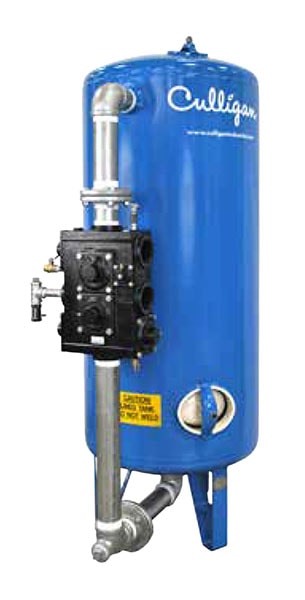Water naturally contains a variety of mineral compounds, such as calcium and magnesium. The amount of these compounds contained in a sample of water determines whether it is considered “hard” or “soft”. Hard water has high levels of minerals, while soft water has low levels of minerals.
The term “softened water” refers to hard water that has been processed through a water softener. The water softening process reduces the amount of minerals in water, which can alter its taste, smell, and look. These obvious changes, among others, lead many to wonder whether it is safe to softened water. Below, we address this commonly asked question as well as a few others.
Safety of Drinking Softened Water
Generally, softened water is safe to drink. However, the water softening process can lead to elevated sodium levels in the water, which can be detrimental to the health of people with high blood pressure.
Elevated sodium levels can occur because sodium is used in the softening process. Water softeners use an ion-exchange process that employs polystyrene beads charged with sodium chloride ions. As hard water moves across the beads, the mineral ions and sodium chloride ions trade places, resulting in lower mineral levels but higher sodium chloride levels in the processed water. Additionally, sodium is used to cleanse the resin that catches the unwanted minerals. Any residual sodium left behind after the cleansing stage can be swept into the processed water. The amount of sodium that ends up in the water depends on the hardness of the unprocessed water; extremely hard water will require more sodium to soften it, resulting in higher sodium levels in the processed water.
Given the highest limit on recommended levels of salt in drinking water is 200 PPM (mg/L), if the water hardness was below 400 ppm before it was softened, there is little to no risk in drinking the softened water. If the water hardness was above 400 ppm, then it may be necessary to purify the processed water further to reduce its sodium levels before drinking it.
Additional FAQs About Water Softeners
Why Is Hard Water Bad?
Hardness and softness don’t just impact drinking water. The more calcium and magnesium present in the water, the more likely scale and residue will build up in pipes, which can restrict water flow and require additional maintenance and repair. Additionally, soap doesn’t lather well in hard water, so you may find you’re using more soap and shampoo than you would if you had soft water.
How Do Water Softeners Work?
Water softeners remove minerals via an ion-exchange process. The polystyrene beads are charged with sodium chloride ions, which exchange places with the mineral ions when the water passes through the beads. The minerals are left behind, though the water takes on that bit of salt.
What Benefits Do Water Softeners Offer?
There are many benefits to integrating a water softener into a facility’s water-based systems, such as:
- Extended equipment life: Water softeners extend the life of water-handling equipment by minimizing mineral buildup that can cause damage or degradation.
- Reduced maintenance: Unlike soft water, hard water leaves behind minerals. This buildup needs to be removed to ensure equipment continues to work well.
- Increased energy savings: Since soft water does not cause mineral buildup, there is little risk of mineral deposits restricting water flow, resulting in higher equipment efficiency and lower energy usage.
- Enhanced cleaning efficiency: Softened water decreases the amount of cleaning solution needed when cleaning equipment, resulting in lower cleaning costs, water usage, and energy costs. Soft water can also save between 50-70% on soap products and efficiency of water heaters.
Water Softeners From Reynolds Culligan
Looking for water softeners for your facility? Reynolds Culligan is here to help!
Equipped with over 70 years of designing and manufacturing water treatment systems, we have what it takes to deliver a water softening solution that fully meets your needs. By offering free quotes, water analysis capabilities, and after sales services, we ensure you get the best system and service for your facility. Our application engineers are available to help you with everything from equipment selection to maintenance to repair. To learn more about our water softening solutions, contact us today.


